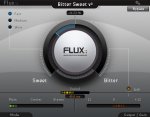crimsonhawk47
New member
I know a few of you on here are advocates of not using compressors in a digital setting because a lot of sounds don't have dynamic range. But wouldn't a fast enough attack time and no make up gain with the right threshold bring out transients? And won't that add a great amount of impact to a track? I sometimes feel that I don't have enough transient information in my sources.
Are compressors shunned because they are often used to dull the transients? If so, then shouldn't we shun make up gains and bad attack/release controls more? I know Bruce Swedien talks about not using compressors, but that's because transients could be captured with the right mics in his collection. You don't necessarily have a way to capture transients in a digital setting.
Thoughts?
Are compressors shunned because they are often used to dull the transients? If so, then shouldn't we shun make up gains and bad attack/release controls more? I know Bruce Swedien talks about not using compressors, but that's because transients could be captured with the right mics in his collection. You don't necessarily have a way to capture transients in a digital setting.
Thoughts?


